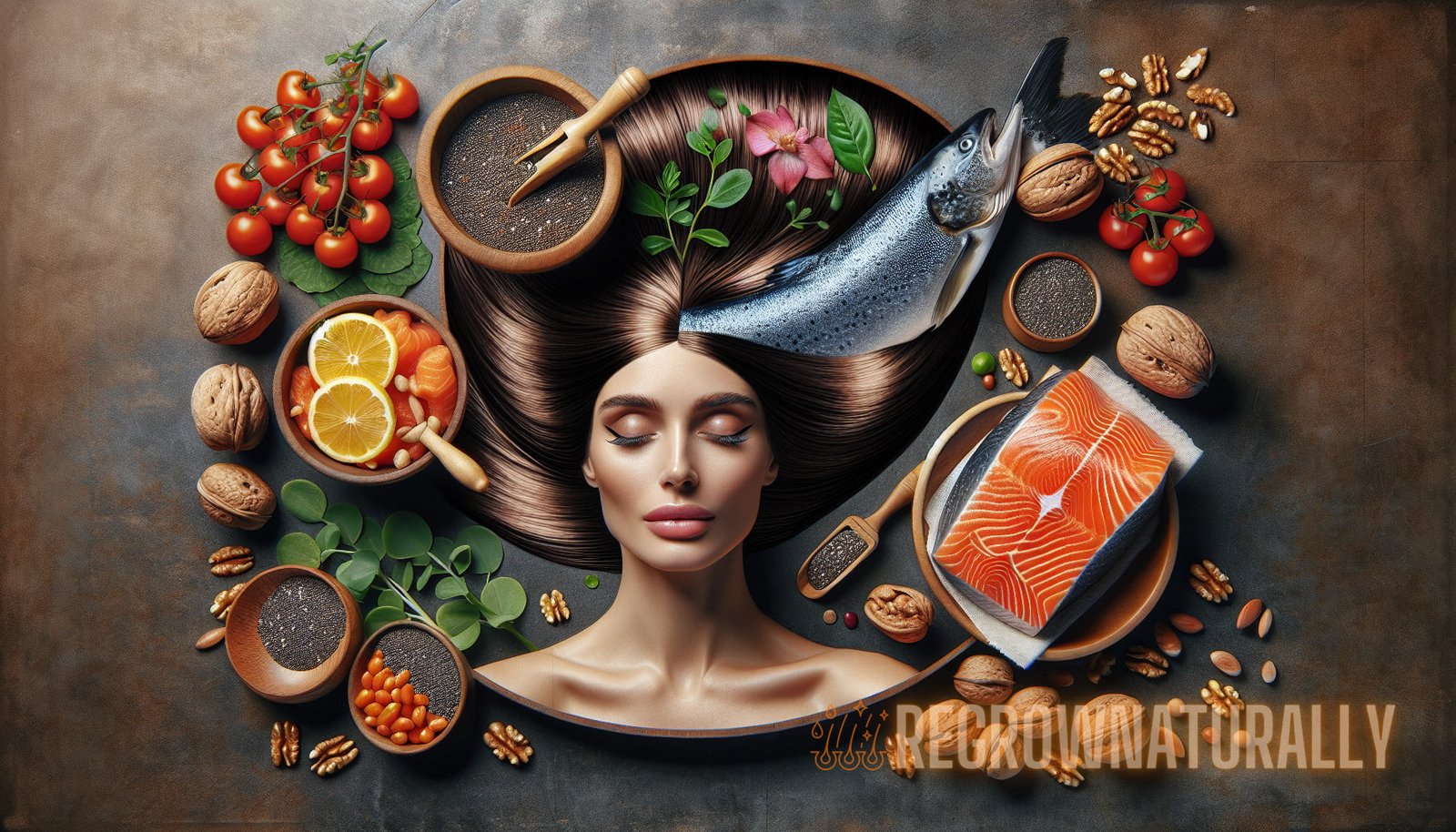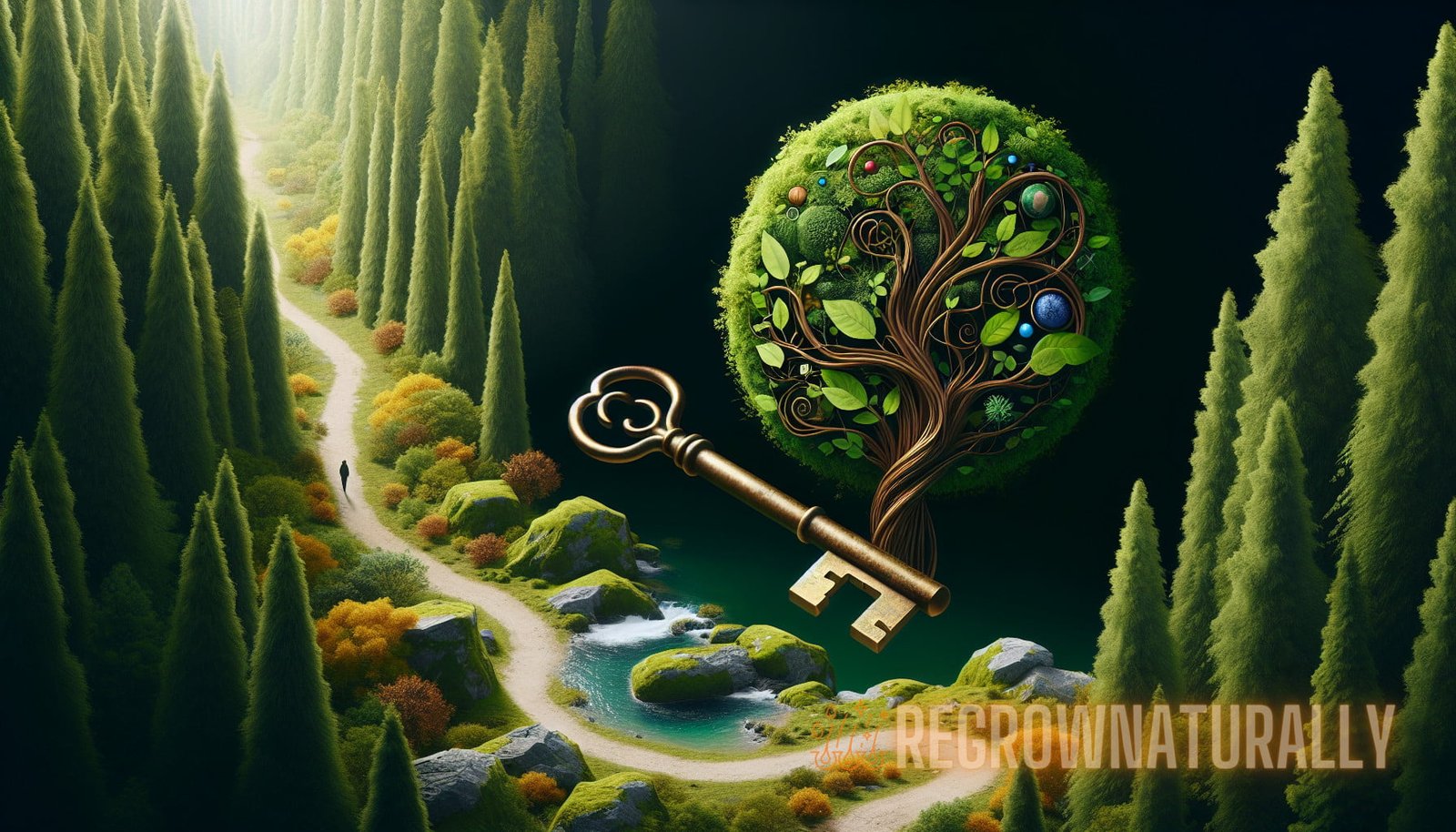Nature’s Bounty: Exploring the Essential Nutrients for Radiant and Resilient Hair
When it comes to having beautiful, healthy hair, it’s not just about using the right products or styling techniques. One of the most crucial elements in achieving vibrant-looking hair is proper nutrition. Just as our bodies require specific nutrients to function optimally, our hair also needs a variety of essential vitamins and minerals to thrive. In this article, we will explore the importance of hair nutrients and how they contribute to radiant and resilient hair.
The Role of Hair Nutrients
Our hair is composed of keratin, a protein that needs specific nutrients to grow and remain healthy. These nutrients play a vital role in maintaining the structure, strength, and overall condition of our hair. Let’s take a closer look at some of the key hair nutrients and their functions:
1. Biotin
Biotin, also known as vitamin B7, is a water-soluble vitamin that is essential for the growth and maintenance of healthy hair. It plays a crucial role in the production of keratin, the protein that makes up our hair. Biotin deficiency can lead to brittle hair, hair loss, and even changes in hair color. Incorporating biotin-rich foods such as eggs, nuts, and whole grains into your diet can promote hair growth and maintain its strength and luster.
2. Vitamin C
Vitamin C is not only beneficial for our immune system but also for our hair health. It aids in the production of collagen, a protein that strengthens the hair shaft and promotes healthy hair growth. Additionally, vitamin C is an antioxidant that protects the hair follicles from damage caused by free radicals. Citrus fruits, berries, red peppers, and broccoli are excellent sources of vitamin C that can help nourish your hair.
3. Vitamin E
Vitamin E is another powerful antioxidant that promotes healthy scalp circulation, which is essential for maintaining healthy hair follicles. It also helps to reduce oxidative stress and protect the hair from damage. Almonds, spinach, and avocados are rich sources of vitamin E that can contribute to healthy hair growth.
4. Iron
Iron deficiency is a common cause of hair loss, as it can disrupt the normal hair growth cycle. Iron plays a vital role in carrying oxygen to the hair follicles, promoting their growth and preventing hair thinning. Incorporating iron-rich foods such as lean meats, legumes, and leafy green vegetables into your diet can help prevent iron deficiency and promote healthy hair.
5. Zinc
Zinc is an essential mineral that is critical for maintaining a healthy scalp and promoting optimal hair growth. It helps to regulate oil production in the scalp, preventing dandruff and scalp dryness. Zinc deficiency has been linked to hair loss and thinning. Oysters, pumpkin seeds, and beef are excellent sources of zinc that can support your hair health.
6. Omega-3 Fatty Acids

Omega-3 fatty acids are essential for maintaining a healthy scalp and hair follicles. They help to keep the scalp hydrated, reducing dryness and improving overall hair health. These fatty acids are also important for reducing inflammation, which can contribute to hair loss. Fatty fish like salmon, chia seeds, and walnuts are great sources of omega-3 fatty acids that can nourish your hair.
How to Incorporate Hair Nutrients Into Your Diet
Now that we have a better understanding of the essential hair nutrients, it’s important to know how to incorporate them into our daily diet. Here are some practical tips:
1. Eat a Balanced Diet
- Include a variety of fruits, vegetables, lean proteins, whole grains, and healthy fats in your diet.
- Aim to consume a rainbow of colors when choosing fruits and vegetables to ensure you’re getting a wide range of nutrients.
2. Opt for Nutrient-Dense Foods
- Choose foods that are rich in the essential hair nutrients we discussed, such as eggs, nuts, salmon, spinach, and whole grains.
- Avoid processed foods that are high in sugar and unhealthy fats, as they can contribute to hair damage.
3. Consider Supplements
- If you struggle to get enough hair nutrients from your diet alone, consider adding a high-quality supplement to your routine.
- Consult with a healthcare professional or nutritionist to determine the right supplements for your specific needs.
While supplements can be beneficial, it’s important to remember that they should not replace a healthy diet. A well-balanced diet should always be the foundation for optimal hair health.
Conclusion
To achieve radiant and resilient hair, it’s essential to provide your body with the necessary hair nutrients. Biotin, vitamin C, vitamin E, iron, zinc, and omega-3 fatty acids are just a few of the essential nutrients that promote hair growth and maintain its health. By incorporating these nutrients into your diet through whole foods and potentially supplements, you can support your hair health from the inside out.
Remember, achieving healthy hair is a holistic process that requires a combination of proper nutrition, good hair care practices, and a healthy lifestyle. By nourishing your body with the right hair nutrients, you can enjoy the benefits of vibrant and resilient hair for years to come.
Sources:
Nutritional Guides – Eat Your Way to Healthier Hair: Discover the Power of Hair Nutrition Today
Nutritional Guides – Unlock Healthy Hair: Discover the Power of Superfoods for Optimal Growth
Wikipedia – Hair Care



